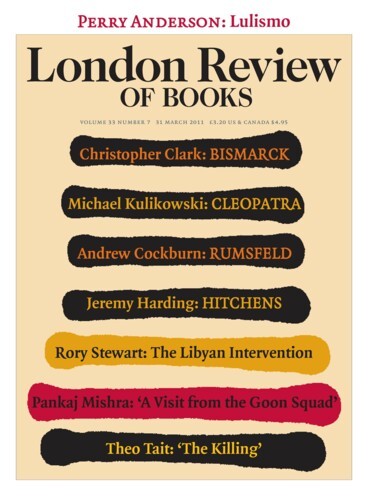How to Serve Coffee: Aleppan Manners
Rory Stewart, 16 February 2017
The fighting that began in Aleppo on 19 July 2012 lasted four years, five months and three days, killing more than thirty thousand people – almost three times the number killed in the siege of Sarajevo twenty years earlier. Most of the tens of thousands of buildings and apartments which were destroyed lay in the modern residential areas in the east of the city, but fighting in the






